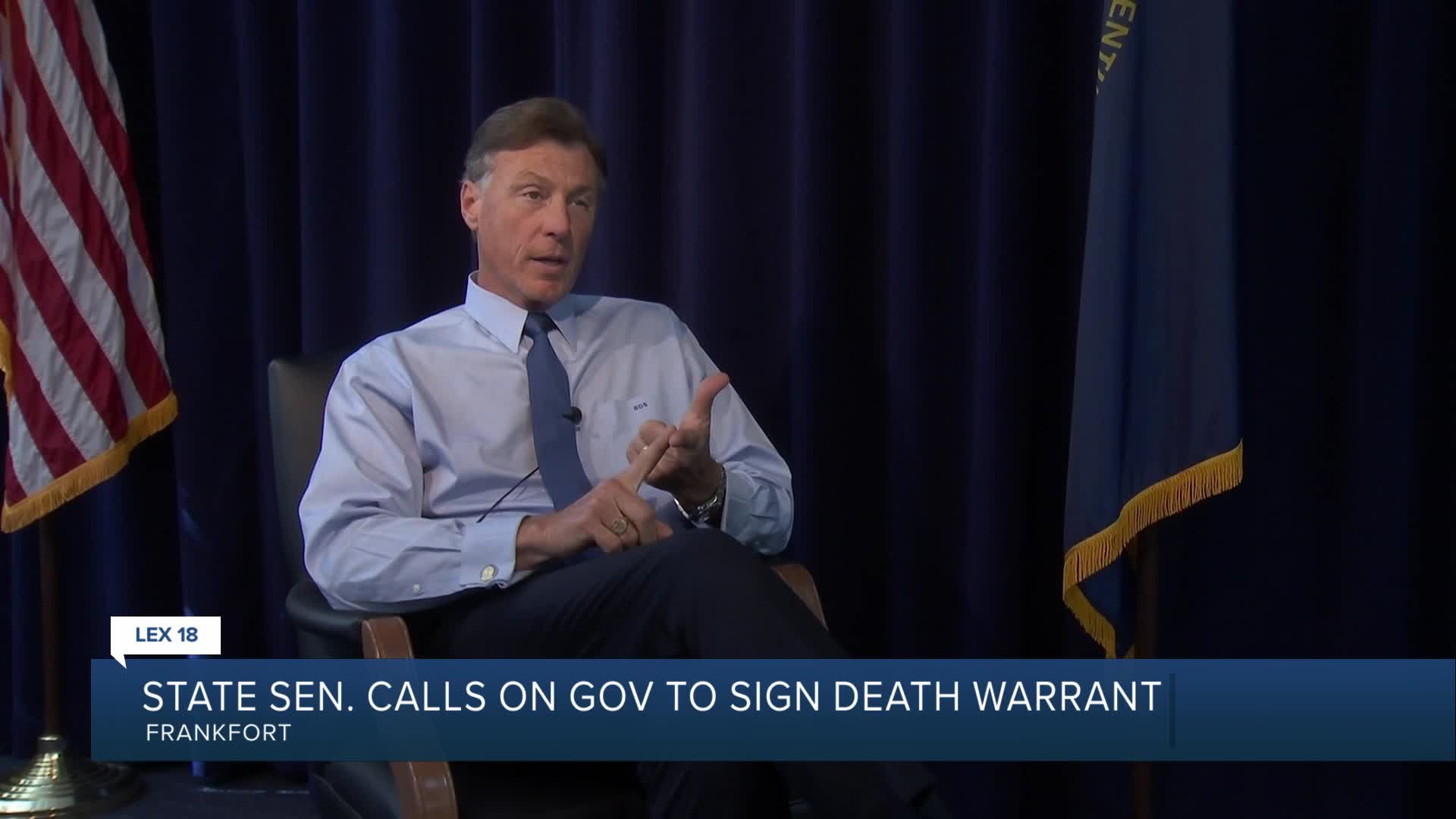FRANKFORT, Ky. (LEX 18) — A Kentucky state senator is intensifying pressure on Governor Andy Beshear to issue a death warrant for Ralph Baze, who was convicted of murdering two law enforcement officers more than 30 years ago.
State Senator Brandon Smith's call follows Attorney General Russell Coleman's plea earlier this month asking the governor to take the same action. In 1992, Baze shot and killed Powell County Sheriff Steve Bennett and Deputy Arthur Briscoe while they were attempting to serve a warrant.
A jury sentenced Baze to death in 1994, but more than 30 years later, he remains on death row.
"This man shot and murdered a sheriff and a deputy and that's that," Smith said. "Now it's time for him to pay the piper and it's like he has a Governor on his side."
Smith is calling on Beshear to publicly pledge to sign a death warrant, formally respond to Lisa Briscoe Lally and her family, and seek federal assistance to obtain lethal injection drugs.
"I think that should be the easiest thing he's ever done," he said. "Is yes, if this is in front of me, I'll sign it."
Scottie Ellis, Chief Communications Officer for the Governor, responded to our request for comment:
As someone who lost a close friend to murder, the Governor’s heart goes out to Ms. Lally and her family. There are several steps that must occur before the issuance of any death warrant. A 2010 injunction issued by the Franklin Circuit Court remains in place, which the Kentucky Supreme Court has stated “essentially forbids the Commonwealth from performing any more executions until … a final judgment in the declaratory judgment action.” This April, in an order denying the Attorney General’s request to dissolve the injunction, the circuit court stated “the 2010 injunction states that the DOC and its employees and agents are restrained and enjoined ‘from taking any steps to implement the administrative regulations at issue in this action (501 KAR Chapter 16), or to otherwise execute the Governor’s death warrant, until the entry of a final judgment in this action, or until further orders of this Court entered after adequate notice and a hearing.’” The court also stated that the injunction remains in place until the Kentucky Supreme Court has resolved the issues in the case and the validity of the most recent Dept. of Corrections regulations.
In following the Court’s ruling, the Dept. of Corrections filed an amended regulation in July which is currently going through the regulatory process. Written comments and more comments from the public hearing are being reviewed, and responses will be filed by Nov. 15, 2025. In addition, DOC does not currently possess the drugs necessary to perform a lethal injection – and since 2018, has received notifications from four different companies that they are unwilling to provide drugs for their use in executions.
Attorney General Russell Coleman has disputed the legal barrier in a letter to the governor in June, saying the Franklin County ruling does not prevent the governor from signing the warrant. Coleman has also disputed the claim that the Department of Corrections cannot obtain the needed drugs.
"I'd like for him to show us, he keeps saying that he can't get the medications out there. The Trump administration has made this very clear that if you want these medications, you can apply for those," Smith said.
Smith said he has been in touch with the families of Baze's victims and believes his execution might bring them some closure. However, others argue against the death penalty.
"There are tons of studies that show that the death penalty is not a deterrent to a violent crime. And honestly throughout this period of history where we're experiencing a decline in death sentences," said Russell Allen, Executive Director for the Kentucky Coalition Against the Death Penalty.
"The best, and it's not even a good solution, but the best solution is the life without the possibility of parole," said Allen.
If approved, this would be the state's first execution in nearly 20 years. Smith said he is willing to take the matter to Attorney General Pam Bondi.
Counsel for Ralph Baze provided a statement saying:
"This is not a question of policy; it is a question of whether the law will be followed. As the Kentucky Supreme Court made clear, all Kentucky executions are prohibited until all aspects of the execution protocol, not just matters concerning intellectual disability, have been found to be valid under the law. Kentucky’s system of carrying out a death sentence has been ruled to be unconstitutional, and it has not been fixed. Significant questions concerning the execution protocol are still before the courts. Setting an execution date now is premature and legally prohibited. Also, Ohio just postponed more executions because, even after seeking the federal government’s help, it could not obtain the necessary drug for an execution. There is no reason to believe it would be any different here. Governor Beshear is following the law, complying with court rulings prohibiting setting an execution date and appropriately not putting victims’ family members through additional suffering by setting an execution that would undoubtedly then be postponed.”





